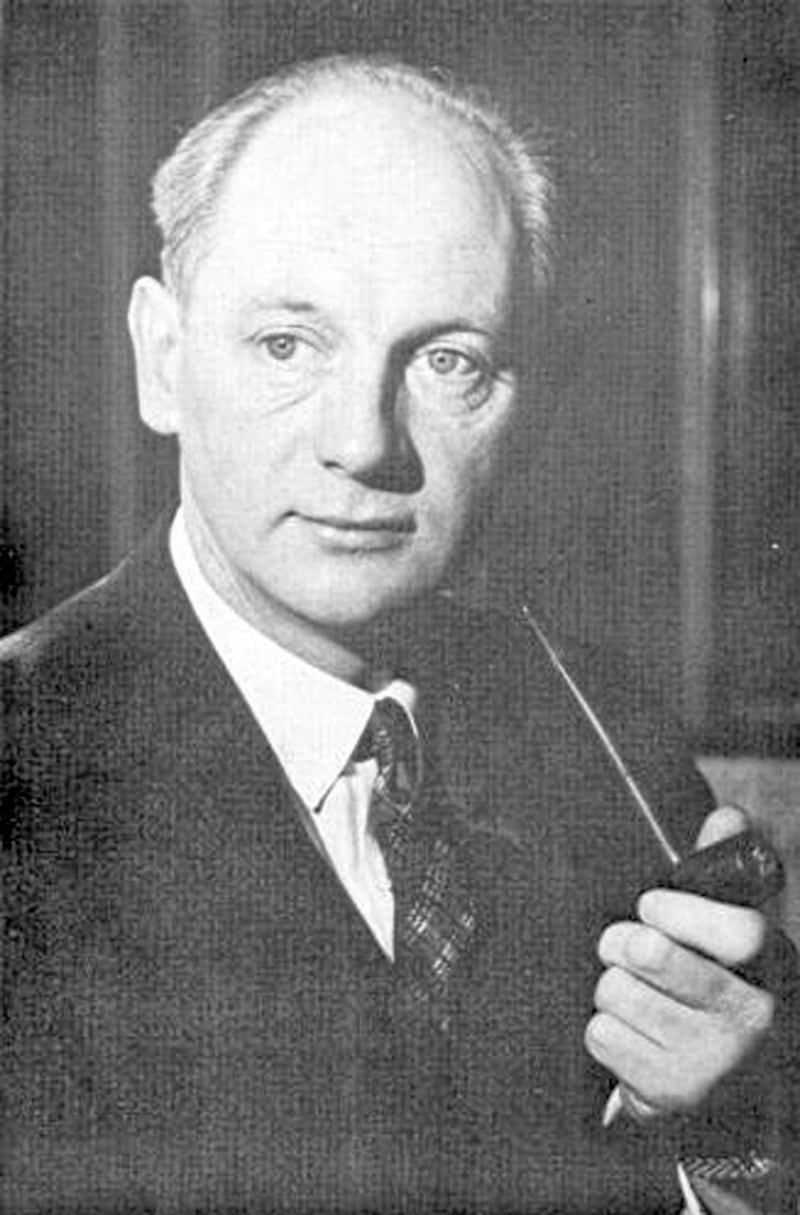A CO Tyrone man has claimed the Irish army came within minutes of invading the north to highlight the plight of nationalists faced with a sectarian onslaught in the late 1960s.
Killian McNicholl (82) from Dungannon has broken his silence on secret plans by the Dublin government to force an international crisis more than 50 years ago.
While it was already known that the Irish government had drawn up a blueprint to cross the border in 1969, Mr McNicholl has revealed fresh details.
Mr McNicholl also told how he acted as a guide for Irish army officer Captain James Kelly in 1969 as he searched out potential border crossing points.
He said several locations were identified from Co Louth to Derry city. He also revealed how he was in a house in Dublin with former Irish government minister Neil Blaney when the daring operation was dramatically called off at the last minute.
A key figure in the civil rights campaign in Co Tyrone in the 1960s, Mr McNicholl worked closely with Dr Conn McCluskey and his wife Patricia on the Campaign for Social Justice, which highlighted discrimination against the Catholic minority.
He later emerged as a founding member of the civil rights movement in Dungannon.
In August 1971 he was detained without trial on the first day of internment and later held in Ballykinler British army base, the Maidstone Prison Ship and cages of Long Kesh, where he says he was “badly beaten”.
While on the Maidstone he was accused of trying to set fire to the ship and recounts “suffocating” below decks where he was being held as the vessel burned.
Although he had “republican sympathies” he said his role at the time was with the civil rights movement.
The rise of the campaign coincided with an upsurge in sectarian attacks against Catholics, with the RUC and B-Specials often accused of looking on or taking part.
As pressure on nationalist districts increased throughout 1969, then taoiseach Jack Lynch declared that the government “can no longer stand by and see innocent people injured and perhaps worse” and revealed plans to set up field hospitals along the border.
A secret Irish army document, Interim Report of Planning Board on Northern Ireland Operations, also known as ‘Exercise Armageddon’ and drawn up in 1969, later confirmed plans by the government to cross the border but warned such as move undertaken against the north would be “militarily unsound”.
Mr McNicholl said he agreed to act as a guide for Captain Kelly after a request from Belfast republican John Kelly, right, who was a leading figure in the Citizen Defence Committees, set up to protect nationalist districts in the late 1960s.
John Kelly, a veteran of ‘Operation Harvest’ in the 1950s, went on to become an early leader in the emerging Provisional movement after the IRA split into two factions in late 1969.
Mr McNicholl said he was aware of Captain Kelly’s role.
“I knew he was intelligence with the Irish army, I was just civil rights,” he said.
He said the pair travelled around the north for a week as Captain Kelly identified potential crossing points.
These included Aughnacloy in Co Tyrone, Garrison and Derrylin in Co Fermanagh and Blacklion, on the Cavan/Fermanagh border.
A site near to Derry and another close to Dundalk in Co Louth were also identified.
“He was gathering intelligence to see where they could set up their camps, scoping sites,” he said.
“He was obviously working under the instructions of Jack Lynch.
“He was a very nice man – there’s not a chance you would have thought he was a military man, a tall guy and very dignified.”
Mr McNicholl said the operation was part of a wider plan to highlight the plight of northern nationalists and force an international intervention to ease their plight.
“The reason for this was not that the Irish government wanted a united Ireland there and then, it was to protect the Catholic people because they were being slaughtered,” Mr McNicholl said.
“The idea of the whole thing was to create that big an incident that the United Nations would have had no choice but to have come in.
“If the incursion had taken place there would have been no Provisional IRA. They would not have been needed.”
Mr McNicholl revealed that he was later asked to travel to an address in north Dublin on the date the operation was due to take place.
Several other people were present including Donegal TD Neil Blaney and Belgian businessman Albert Luykx, who were both later involved in the 1970 Arms Crisis.
According to Mr McNicholl, the Irish army had been ordered to launch the operation at 2am from a “centre point” in Monaghan.
He said that as those gathered in north Dublin waited anxiously, the invasion was halted minutes before it was to take place.
Mr McNicholl said government minister Kevin Boland rang the house and believes taoiseach Jack Lynch gave the order.

“There was a phone call to this guy’s house to Neil Blaney to say it was called off – after all the work that had been done Lynch had chickened out,” he said.
“He put the phone down and was quiet for a few seconds and he said it was called off.
“He could not understand it and made a few phone calls to find out what had happened but he could not find out.”
Mr McNicholl said Mr Blaney blamed Jack Lynch.
“He called him a f***ing b***ard, he was raging, he was absolutely raging,” he said.
Mr McNicholl said he personally “felt sick” that the Irish army had been stood down so close to the launch.
He returned north the following day and said he provided a report of what had taken place to some within the civil rights movement.
“I think some of them were happy,” he said.
“Some of them were very much afraid that something disastrous would happen. But something disastrous did happen, worse than if they [the Irish army] had come in.
“In my opinion we would not have had the trouble we had for 30 years.
“The whole objective was to create the international incident but it didn’t happen.”
Mr McNicholl regrets that the military action did not take place.
“The RUC would not have known what happened until daylight the next day,” he said.
“Jack Lynch is Jack Lynch and he is what he is but in my opinion he was a coward.
“I don’t think there was a person in the Irish army that would not have gone across. At that stage things were bad and the Catholic community had no protection.”
In the aftermath, Mr McNicholl had no more contact with Captain Kelly.
While critical of those who called off the invasion, Mr McNicholl believes British intelligence may have played a part.
He said it was known at the time that British military intelligence had well-placed assets within Garda Síochána.
“I am 100 per cent confident that the British, MI5 or MI6, were involved in Jack Lynch’s decision, either through the Garda Síochána or the TDs they had in their pocket,” he said.
“I am convinced the intent was there because I would not have been in that house that night if it had not been.”
Months after the abandoned invasion, details of plans to smuggle weapons into the north for use in nationalist areas became public.
Known as the Arms Crisis, it sparked a political storm.
Among those linked were Neil Blaney, Albert Luykx and Captain James Kelly.
The plot was also said to involve Dublin minister Charlie Haughey –whose parents were from Swatragh in Co Derry – and who later served as taoiseach.
As details emerged, Jack Lynch sacked Haughey and Blaney while fellow minister Kevin Boland resigned in solidarity.
In May 1970, Haughey, Blaney, John Kelly and Captain James Kelly went on trial and were joined in the dock by Albert Luykx.
All charges against Blaney were dropped and the trial collapsed in July 1970.
A second trial began in October that year but the remaining accused were eventually also cleared.
Captain Kelly and his family remained bitter over his treatment at the hands of the Dublin authorities.
Mr McNicholl also believes he was poorly treated.
“We talk about great Irishmen now – I think he was one of the greatest Irishmen because he ended up a scapegoat for everyone,” he said.
“He did everything he was asked to do and they threw him under the bus.”








